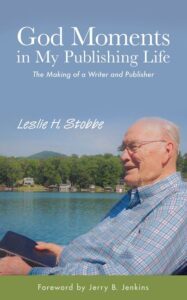Lori Stanley Roeleveld's Blog, page 5
April 24, 2023
Newfangled (Post 3 in the Third Chapter Spiritual Disciplines Series)
 How do you respond to newfangled ideas in the church?
How do you respond to newfangled ideas in the church?
Has the term newfangled sprung to mind recently? That’s a sure sign you’re ready to institute this spiritual discipline.
Our generation faced extreme resistance from the established generation when we advocated for change in the church. Can we be any different? Can we be gray-haired champions of change?
Not long ago, a young dad from our church hoisted himself onto the chair lift to make the ascent to our sanctuary.
I was the only one standing near, so I offered to carry his wheelchair to the top landing. Which I did.
He expressed shock that I just lifted and carried it. Apparently people usually bump up the stairs one at a time.
Plus, believe me, I don’t look like a weightlifter.
But I am. In the interest of remaining physically independent into the coming decades, I have begun my little home system of lifting weights.
I saw many upsides to this new endeavor but now I see another—defying expectations of younger people. That’s just fun.
In February, I wrote about my years of practicing the spiritual disciplines I first learned from Richard Foster in 1978 (prayer, Bible study, Scripture meditation, fasting, solitude, simplicity). I also proposed the need to modify them and add some new disciplines in the third chapter of life.
Third Chapter Spiritual Disciplines acknowledge that we have different needs as we age, and we have different gifts to offer the body of Christ. In March, I wrote about Intentional Community as one new discipline I propose.
This month, I want to talk about the discipline I call Embrace New Ways, People, and Experiences.
Seriously, if you grew up in the sixties and seventies, we have to look in the mirror and ask what happens when the revolutionaries of the “change” generation are faced with too much change?
Our generation instituted contemporary worship music, casual dress, and friendship evangelism among other things. How will we react when we encounter a wave of young people insisting it’s time for even more change?
Sounds like a card from that fight game that poses questions like who would win in a fight between George Washington with invisibility and nuclear capability or a child beauty pageant star who could use the force? (Clearly, the child pageant star. Feel free to disagree in the comments.)
 I remember all too well the bumpy ride of our generation trying to “sing a new song” to the Lord. We were met with accusations of bringing “the devil’s music” into the church and “lowering the bar” of Sunday clothes. I wasn’t a rebellious teen by any means, but I did stake my own territory by sneaking in torn jeans to wear on Easter Sunday while singing in the front of the church (didn’t go over well with my dad in his suit).
I remember all too well the bumpy ride of our generation trying to “sing a new song” to the Lord. We were met with accusations of bringing “the devil’s music” into the church and “lowering the bar” of Sunday clothes. I wasn’t a rebellious teen by any means, but I did stake my own territory by sneaking in torn jeans to wear on Easter Sunday while singing in the front of the church (didn’t go over well with my dad in his suit).
We may now have an all-too clear understanding of the challenge unbidden change can bring. It’s one thing to initiate change. It’s entirely another story when change is thrust upon us. Surviving it, though, happens first in the way we think.
Change and growth are evidence of life. Jesus is alive. His Body is alive. Our bodies are always growing and changing. If the church isn’t growing and changing, that’s evidence of decline that leads to death.
Jesus is the living vine, and we are the branches. Branches that bear no fruit are cut off. Don’t be that branch!
If we consciously commit to the spiritual discipline of Embrace New Ways, People, and Experiences, we will resist the temptation to live in fear of others proposing change.
Not all change is wise or good but if we battle against every change, we lose our voice in the conversation. When we are known as initiators of change and supporters of growth, then we are better heard in those times when we take a stand against foolishness, heresy, and change for passing fashions’ sake.
I’ve had amazing role models for this. My dad remained an active fire chief until he was 79, learning new equipment and methods until his last day. My former agent is in his nineties and still engaged with writing ministry, always needing to embrace new things. Our new pastor tried to retire but it just didn’t take and we’re grateful he’s ready to embrace a new congregation. My friend, Maggie Rowe, published her first book in her late sixties. My dear friend Lucinda’s final book will release after her death. That’s the way for a Christian writer to go home, with fresh ink on the page.
always needing to embrace new things. Our new pastor tried to retire but it just didn’t take and we’re grateful he’s ready to embrace a new congregation. My friend, Maggie Rowe, published her first book in her late sixties. My dear friend Lucinda’s final book will release after her death. That’s the way for a Christian writer to go home, with fresh ink on the page.
I’m learning to be edited by people more than 30 years younger than I am, to work with apps and other technology that sometimes overwhelm, to roll with words changing meaning, and to tolerate my teenage grandsons’ music streaming nonstop from the room beside my office. I’m also learning Spanish and screenwriting to keep learning muscles from atrophy. In the church, I’m learning to listen to the next generation and not immediately dismiss their experience or their input. I’m learning to seek out a chair at the table with people who don’t look like me.
But how do we do it? How do we continue to embrace change when everything is changing? Practice the spiritual discipline to Embrace New Ways, People, and Experiences.
We can do this if we choose to R.E.M.A.I.N. C.A.L.M.
Resist cantankerous, ornery, or crotchety thinking. (2 Corinthians 10:5)
Embrace wise change. (Ecclesiastes 7:10, Philippians 2:14)
Maintain sound theology. (1 Timothy 4:16)
Advocate for the heart needs of others and for yourself. (Proverbs 4:23) (It’s okay to say that hymns feed your heart or that hearing the Bible read in your language is important, too. Just make room for others.)
Inspire the next generation. (Psalm 71:18) (It never hurts to surprise them either!)
Never take your eyes of Jesus. Never focus more on the to-do’s than on the to-be’s. (Luke 10:41-42)
Communicate love and truth, just as Jesus did. Remember to grow up or to mature, is to change. (Ephesians 4:15)
Align your life with God’s Word. (Luke 11:28)
Laugh often. Love without hypocrisy. Let go of what doesn’t matter. (Philippians 4:4-7)
Make no mistake. He’s making all things new. Get ready for new. (Isaiah 43:19, Revelation 21:5)
What are your best strategies for managing your response to change?
I respond to every comment and answer every email. Let me know what you’re thinking!
Newfangled. Get ready for new! This Third Chapter Spiritual Discipline can help you keep up with change. https://t.co/SsZyppyyuf #aging #Jesus
— Lori Roeleveld (@lorisroeleveld) April 24, 2023
April 4, 2023
The Danger of Living Under Your Assumed Name (a confessional post)
 Are you someone who tries very hard?
Are you someone who tries very hard?
Are you a person who loves Jesus dearly, reads His Word daily, and wants to be found applying that Word to Your life?
Are you, like me, someone who sometimes gets caught up in the hard trying, the striving, the effort of this life with Christ?
This post, a one-week deviation from spiritual disciplines, is for us.
Hi, my name is Lori, and I’m a recovering striver.
Are you like me? When I read Psalm 46:10 nasb, “Stop striving and know that I am God.” I then strive to cease striving.
To strive is to make great efforts to achieve or obtain something. That’s me. I’m always trying. I have been since my dysfunctional childhood.
Something deep within me was twisted early on to please, to earn, to try, to work for attention, kindness, respect, and love.
While this made me a good student, an obedient daughter, and kept me out of trouble in the 70’s, it also set me up for a lifetime of angst, misspent energy, and spiritual exhaustion.
Can you relate?
Romans 9 ends with a passage about why the Israelites are stumbling over the gospel, the good news of the Messiah.
“What shall we say, then? That Gentiles who did not pursue righteousness have attained it, that is, a righteousness that is by faith; but that Israel who pursued a law that would lead to righteousness did not succeed in reaching that law. Why? Because they did not pursue it by faith, but as if it were based on works. They have stumbled over the stumbling stone, as it is written, ‘Behold, I am laying in Zion a stone of stumbling, and a rock of offense; and whoever believes in him will not be put to shame.’” Romans 9:30-33 esv
To be chosen by God is to be chosen to receive, not chosen to achieve. To be chosen to belong, not to be strong in our own strength.
He chose the Israelites to know Him and to glorify Himself through His relationship with them. It wasn’t about what they could achieve for Him, but what He would determine to do for them and through them.
The men and women of the Bible aren’t great, accomplished, super-spiritual people. Every one of them was faulted, sinful, failing, and undeserving. Like us.
 The Bible isn’t about great people but about our great God.
The Bible isn’t about great people but about our great God.
In Exodus 14:14, as the people of God stood between the uncrossable Red Sea and the armies of Pharaoh intent on their capture, Moses told them, “The Lord will fight for you, and you have only to be silent.” Exodus 14:14 esv
The Israelites weren’t demonstrating faith at that moment. They were panicked as all of us panic when we’re stuck in a place and can see no way out. They were complaining loudly to Moses and accusing God of leading them this far only to let them die (hence, the command to be silent).
And then God parted the waters.
Moses had faith, not in his own walk with God, but in God alone.
This isn’t just an Old Testament story. Peter climbed out of the boat one moment and sank beneath the waves the next. He denied Jesus in the hour Jesus needed Him. Jesus forgave Him and trusted Him with the church.
The story isn’t about how great Peter was, but about the greatness of our God.
It was then, it is now.
This past weekend, I went on a retreat to encourage three other writers, only I showed up so focused on my own weakness, discouragement, and failings I was making it all about me. God showed up anyway and encouraged us all.
I often imagine God is calling me “Striver.” You know, not in my good moments, for sure. But that’s my accusing imagination which has been damaged this side of glory. I know by faith that what God calls me is “My daughter.”
It’s not a name I’ve earned or ever have to earn. It’s mine by birth, new birth in Jesus Christ.
In Lord of the Rings, early on, Frodo, Samwise, Pip, and Merry meet a mysterious, tortured stranger named Strider. Strider means “one who enjoys walking.”
Strider wanders the earth under a name he’s chosen, not the one he was given as a birthright. He does good things, for sure, but he’s not experiencing the greatness for which He was designed.
Through the story we learn that Strider’s actual name is Aragorn, which means “noble valour.” He’s not only the son of a king, he’s the king apparent but he’s not walking in his inheritance. He’s walking in his own strength.
That sounds humble and admirable until you realize the people suffer because he won’t step into the power of his inheritance and choose to serve others rather than his own misery.
 You and I have names we’ve taken on that aren’t the names of our spiritual birthright. Rejected. Abandoned. Invisible. Lost. Unknown. Unimportant. Failure. Stumbler. Forgotten. Unloved. And worse.
You and I have names we’ve taken on that aren’t the names of our spiritual birthright. Rejected. Abandoned. Invisible. Lost. Unknown. Unimportant. Failure. Stumbler. Forgotten. Unloved. And worse.
We strive to earn our way out of the prison of those names but there is only one way out and we can’t earn it. We must simply receive it.
“For God so loved the world, that he gave his only Son, that whoever believes in him should not perish but have eternal life. For God did not send his Son into the world to condemn the world, but in order that the world might be saved through him. Whoever believes in him is not condemned, but whoever does not believe is condemned already, because he has not believed in the name of the only Son of God.” John 3:16-18 esv
Our true names in Christ, are Redeemed, Loved, Ones Who Belong, Sons and Daughters of the Most High King, Chosen, Empowered, Seen, Known by God, Lights of the World.
Jesus paid the full price for those names. There is nothing left for us to pay. We only receive the gift and walk in it.
Hallelujah! He is Risen! He is risen indeed.
(Reply to this email or comment below. I read and respond to every one!)
 A gift to you: For the coming year, I will be happy to present The Hard Conversation workshop or Jesus and the Beanstalk talks to your church group FREE OF CHARGE. That’s right, I’ll waive my speaker fee because I believe we need these skills in our times. Contact me and we’ll schedule! (If you’re a distance, we’ll discuss travel expenses.)
A gift to you: For the coming year, I will be happy to present The Hard Conversation workshop or Jesus and the Beanstalk talks to your church group FREE OF CHARGE. That’s right, I’ll waive my speaker fee because I believe we need these skills in our times. Contact me and we’ll schedule! (If you’re a distance, we’ll discuss travel expenses.)
My birthday is this coming Monday. It would bless me if:
you’ve enjoyed any of my books if you would leave a review on Amazon or Goodreads. you haven’t read any of my books, please choose one this week to purchase or purchase one for your pastor or a friend. Colorful Connections: 12 Questions about Race that Open Healthy Conversations The Art of Hard Conversations: Biblical Tools for the Tough Talks that Matter Running from a Crazy Man (and other adventures traveling with Jesus) Jesus and the Beanstalk: Overcoming Your Giants and Living a Fruitful Life Red Pen Redemption (if you like Downton Abbey and A Christmas Carol, you’ll love this novella).you see value in my writing and would like to support the upkeep of the website on Patreon.you forward this post to friends on your email list.you choose to step into your inheritance in Christ and live as a son or daughter of the King, as you are in Christ.
What’s the danger of living under your assumed name? Find out today! https://t.co/64F2Xh4cSS #Easter2023 #Easter
— Lori Roeleveld (@lorisroeleveld) April 4, 2023
March 30, 2023
Subjected to Futility – On Conversations about the Nashville Shooting
 Six victims and the shooter all dead in Nashville.
Six victims and the shooter all dead in Nashville.
Seven families grieve.
Unimaginable suffering for those who loved them. Lives forever changed.
The rush to pontificate on this tragedy takes my breath away.
Tweets, monologues, news conferences, editorials, and opinion posts commenting as if they know why, as if they know who, as if they know how.
It’s obscene.
Life is sacred. When it is stolen, there should be silence.
Not just a moment. We should be silent for hours, days, a week of national lament where all we do is consider the immense value of a single life. Where all we do is fall face down before God and wait for the Holy Spirit to pray on our behalf.
When we see the faces of those who are gone, how can anyone mock? How can anyone presume? How can anyone blame or politicize or pontificate?
We sit safely ensconced behind our screens speaking into microphones with no faces or typing on keyboards that do not weep. There is no bravery in this.
Brave are those who sit in silence with parents, siblings, grandparents, children, spouses, friends of the dead and confess to having no answers.
Brave are those who wait with opinions, at least until the smell of gunpowder dissipates, at least until the shock settles, at least until the police catch their breath from witnessing tiny bodies ravaged by gunfire.
Brave are parents and spouses soothing children and adults who witnessed events that have scarred soldiers on the battlefield. Brave are those who love the first responders and medical examiner reeling from the aftermath of this violence.
Brave are those who stand beside loved ones who hear their child or the adult they loved discussed by strangers—dismissed or condemned, hated or lamented, employed as pawns or shared as a meme on social media.
It’s one thing to know we live in a fallen, sinful world. This is what it’s really like to live here.
When sin entered the world, it didn’t just impact individuals. Sin infected the whole system. It’s not just an individual story. It’s the story WE live and endure together until Jesus returns.
Paul writes this: “For I consider that the sufferings of this present time are not worth comparing with the glory that is to be revealed to us. For the creation waits with eager longing for the revealing of the sons of God. For the creation was subjected to futility, not willingly, but because of him who subjected it, in hope that the creation itself will be set free from its bondage to corruption and obtain the freedom of the glory of the children of God. For we know that the whole creation has been groaning together in the pains of childbirth until now.” Romans 8:18-22 esv
This is what it means to be subject to futility. These lives are gone and the sin of the world, not just the choices of one person, contributed to what happened.
We suffer.
We cry out for deliverance.
We groan, longing to be set free from this fallenness where children are gunned down, damaged by the world’s confusing rhetoric, hurt by words, subject to abuse, or tempted to rely on their own wisdom to settle scores.
Where wisdom is ignored in the aftermath in favor of ratings, clicks, votes, shares, scores settled or points made.
These lives were not designed to be illustrations in your next speech. They were meant for so much more.
Refuse to engage. Insist that discussions around you focus on the inherent value of each life made in the image of a loving God.
Be silent. Weep. Mourn. Lament. Pray. Listen for God.
Go to the Psalms and know that others have suffered before us and yet, God reigns.
“As with a deadly wound in my bones, my adversaries taunt me, while they say to me all the day long, ‘Where is your God?’ Why are you cast down, O my soul, and why are you in turmoil within me? Hope in God; for I shall again praise him, my salvation and my God.” Psalm 42:10-11 esv
Refuse to speak until lives have been honored and wisdom speaks louder than the speculation of fools. It will be worth the wait.
Subjected to Futility The only reasonable response in the immediate aftermath of death https://t.co/nM3tL10rcD #NashvilleCovenantSchool #Nashvilleschool
— Lori Roeleveld (@lorisroeleveld) March 30, 2023
March 20, 2023
Hiding from People I Love (Post 2 in the Third Chapter Spiritual Disciplines Series)
 The best people annoy me.
The best people annoy me.
It’s admittedly my failing, not theirs.
Thanks to the Holy Spirit, I’m mostly able to avoid eye rolling, sighing, glaring, and raising my eyebrows in group settings, but that’s testimony to His work, not mine.
Hey, I enjoy my own company. I agree with myself all the time and frequently want to do exactly what I enjoy.
Arguments with myself are rare. I’ve never needed articles on how to be my own best friend. Add to that my natural introversion and it would be easy to avoid community all together.
The older I get, the weirder the world gets. The strangeness of each new generation seems to climb exponentially with each decade I live.
And then, there’s church. Gen X’ers, Gen Y’ers, and Gen Z’ers, oh my!
Countless conversations there feel like repeat arguments in a long marriage.
I often remain silent to avoid saying, “Didn’t we settle that question back in the 1980’s?” or “I cannot revisit this subject again. Isn’t there a book you can read?”
I used to criticize the older generation for backing off from church activity, “retiring” from serving, or resisting change. Now, I’m sure they’re looking on from heaven chuckling and heckling, “Not as easy as it looks, is it?”
No.
Still, God calls us, from cradle to grave, to show up. Hence, the spiritual discipline of Intentional Community.
As we age, our appetite for community can wane. Maybe we feel our family is enough.
We have our gardens, watercolors, travels, and books. Or, we’re still working and have less energy at days’ end. We’re drained after caring for parents, spouses, or siblings.
Life’s losses take a toll. News and social media increase our anxiety baseline.
Life’s big questions no longer feel hypothetical, but are everyday realities.
It can be easier to avoid community and justify it by convincing ourselves we’re doing them a favor.
Why burden them with our cantankerous inner topography? Why weigh down the next generation with our late-life questions? Let’s not scare the thirty-somethings.
Richard Foster’s book Celebration of Discipline, released in 1978, the year I started college. It had a profound impact on my spiritual life. Those disciplines continue to serve me but in my sixties, solitude comes easily.
 The discipline I need to add now is Intentional Community. The discipline of showing up.
The discipline I need to add now is Intentional Community. The discipline of showing up.
It’s become too easy to spend hours alone.
At church, it’s more tempting than ever to slip out as the service ends and avoid the chit-chat of coffee hour. I’ve never been one for small talk, less so now, and there’s an unread novel calling my name.
But, the Holy Spirit prods me to linger, reminding me that solitude isn’t a spiritual discipline if I’m using it to hide, escape, or avoid interaction that may remind me I’m still a work in progress.
The Bible tells me I need others and they need me. To not to give up meeting together. That two are better than one. That He blesses the two or three gathered with His presence.
Romans 12:16 says, “Live in harmony with one another. Do not be haughty, but associate with the lowly. Never be wise in your own sight.” You know what helps me see how much I still have to learn? Being around other people.
Getting annoyed is a growth accelerant.
To be united with Christ is to be part of the family of God—an active part of a living body.
In our flesh, we may have less energy, less appetite, less stamina for community, but the Holy Spirit can provide what we need to get over ourselves.
To help us practice Intentional Community, we must simply remember to SLIP and FALL.
Show up: Sure, slow down, but still show up. Get to church. Attend a mid-week gathering. Serve in one ministry. You don’t have to maintain your old pace but choose to show up regularly. It really is half the battle.
Linger: Hang out. Tarry. Sit awhile. The most powerful connections happen in the unguarded, unscripted moments when the table’s being cleared. Don’t rush off. Remember, to love is to linger.
Invest: Even if you’re identifiers and appearance change, you don’t need to accept invisibility. Be intentional about having at least one conversation and then invest in making it happen. Ask God to identify that divine appointment.
Present: While others look at watches or cell phone notifications, be the person who is present. You’ll be amazed what ministry can occur simply through the precious gift of your presence.

Focus: At gatherings, noise can be a factor and large group discussions can overwhelm, so focus on a smaller group, maybe one family, or look on the fringes for someone holding up the wall. Don’t wait to be noticed. Be the noticer.
Authentic: Drop the mask. Haven’t we earned the right to be ourselves? Bring your authentic self into conversations with young and old alike. While you still feel like your 25-year-old self, others may see you as “the old guard,” “the authority,” or the “serious senior.” Be a surprise by being you. Let them see what they’d be missing without you there.
Listen: Ask compassionate questions (prepare some before you even leave the house). Simple questions can open great conversations. “Tell me about the first car you remember.” “What is it like being in high school these days?” “If your life was a movie/song/book, what would be the title?” Listen. Then say, “Tell me more,” or “Wow, I’d like to hear more about that.”
“What is it like being in high school these days?” “If your life was a movie/song/book, what would be the title?” Listen. Then say, “Tell me more,” or “Wow, I’d like to hear more about that.”
Look: Look for opportunities to: Learn, laugh, love, and leave others better than you found them. Proverbs says that as we refresh others, we are refreshed. Learn a joke. Ask others to share a funny story. Ask yourself what you learned about others today, about yourself, about community. Love with words of validation, with acts of kindness, and with exchanges of prayer and God’s Word. See others and help them see God.
Intentional Community—a spiritual discipline to add to life as we age. I read every comment so share your experience with wanting to drop out but continuing to show up!
If you missed my first post in this series on Third Chapter Spiritual Disciplines, you’ll find it here.
Hiding from the People I Love Do you find yourself starting to withdraw from community as you age? Stop it! https://t.co/abMkf4DFUb #Christianliving #aging
— Lori Roeleveld (@lorisroeleveld) March 20, 2023
February 28, 2023
Third Chapter Spiritual Disciplines
 We are going to die.
We are going to die.
That’s what I said on Sunday to my best friend. Yeah, I can be cheery that way.
Surrounded that day by my children, their children, and the youngest generation at our church, I had cause to consider my years.
Aging isn’t for sissy-Marys.
Neither, however, is aging a curse, but a blessing.
Growing older comes with challenges, but it’s truly a joy, a gift, a boon
to live into a third chapterto watch the next generation grow, and even glimpse the nextto know God into a fifth, sixth, even eighth decadeto proclaim Him with zeal and greater confidence having witnessed years of His faithfulness.But, day-to-day, it’s no picnic.
The first time I injured my back simply by bending down to retrieve a paper clip, I realized I’d have to become a more creative storyteller—bending down to retrieve state secrets or to save a puppy from drowning in a stream, for instance, make a better face-saving tale.
Bodies have different needs over sixty and so do souls.
Our generation of believers was influenced by teaching on spiritual disciplines by writers like Richard Foster and Dallas Willard.
We are saved by grace alone. The good news of Jesus is what God has done for us, not what we do to impress God.
The spiritual disciplines help us stay open and available to God, growing up in our faith, and bent more toward Him than away.
Commonly understood as disciplines of the faith are Bible study, prayer, fasting, meditating on God’s Word, simplicity, solitude, submission, service, confession, worship, guidance, and celebration.
Aspects of these disciplines become easier as we mature.
Many of us fall more naturally into simplicity. We have more time for prayer. More occasion for solitude.
By now, Bible study and meditating on God’s Word should be daily second nature. Perhaps we’ve switched to the large print or rely more on audio versions.
Many of us continue to serve but we do so with modified energy or a closer focus to local ministry (although others appear to sprout wings in their third chapter, traveling to the ends of the earth).
Fasting requires new considerations.
 Confessions are increasingly more related to internal sins of thought and attitude than wild behaviors—sins of omission outweigh those of commission.
Confessions are increasingly more related to internal sins of thought and attitude than wild behaviors—sins of omission outweigh those of commission.
There are alterations and modification that occur with these standard disciplines for mature believers,
but I’ve been thinking there are several disciplines we would be wise to add in these later years.
For instance, as we age, we generally have more opportunity for silence and solitude. It can be tempting to sink into that and begin to absent ourselves from community.
I believe a worthy discipline for our later years is Intentional Community. The discipline of showing up.
As embarrassing as this is to admit, coming from the “change” generation, it can also be tempting for us now to rest on our laurels and resist change.
Another worthy spiritual discipline for remaining open and flexible is the discipline to Embrace New Ways, People, and Experiences.
The older crowd can fade from others’ view. Some of us handle that by embracing our invisibility. We intentionally sideline ourselves or become geriatric wallflowers at church.
The younger generation needs us whether they know it or not. And we need them.
Persistent Engagement is a powerful spiritual discipline as we continue to seek new learning, enter conversations, and ask kind, gentle questions to build relationships with younger people.
Too many of us fall prey to fear, anxiety, panic, and rumormongering as we enter our later years.
The discipline of Whatever is True can remind us to take every thought captive and nurture courage, calm, and prayer-centered thinking so we don’t fret ourselves and our loved ones into a frenzy.
Additionally, we are now free of worrying what others think or falling prey to social convention. We are ideal candidates, then, for mentoring, discipleship, and evangelism.
The spiritual discipline of Bold Wisdom could hearten us to speak up, speak out, and proclaim truth with confident humility as we share the gospel with peers and guide upcoming generations at home and in the church.
 Finally, to combat hardness, bitterness, unforgiveness, or general curmudgeonly spirits and to fight our inner pharisees, we must actively seek generous spirits and gentle hearts.
Finally, to combat hardness, bitterness, unforgiveness, or general curmudgeonly spirits and to fight our inner pharisees, we must actively seek generous spirits and gentle hearts.
Ambassadors of Mercy is the discipline that would help us maintain these godly attitudes and prevent hardness of heart.
Over the next few posts, I want to explore each of these and offer them as Third Chapter Spiritual Disciplines.
Our generation has redefined so much of our culture, we’re perfectly capable of redefining what it means to be the “older generation” in our churches. We can make that an aspirational term, not a frustrated sigh.
I would love to hear your thoughts on this! I read and respond to every comment.
Spiritual Disciplines for life's third chapter! https://t.co/e35E5HcgmZ #spiritualdisciplines #JesusRevolution
— Lori Roeleveld (@lorisroeleveld) February 28, 2023
February 15, 2023
He Gets Us and the Double-Edged Sword
 This morning as I read God’s Word and prayed, Jesus called me out on some heart issues.
This morning as I read God’s Word and prayed, Jesus called me out on some heart issues.
I’ve been at this following-Jesus life for decades.
My younger years were pockmarked with struggles against immorality, impurity, godly lifestyle choices and other engagements with sins typical of young adults (especially coming up in the 60’s, 70’s, and 80’s).
I lost some of those battles but Jesus ultimately prevailed in me, forgave me, and continued to grow me up in Him. Many of those battles are far in my rearview mirror.
Now, though, while I may have the outward appearance of a respectable, mature Jesus-follower, I find, to my dismay, the battle against sin continues to rage within me.
Temptations to judgement, self-righteousness, pride, envy, greed, unbelief, love of money, spiritual sloth, prayerlessness, unforgiveness, and more create skirmishes and dogfights that loom as great as the early battles I fought.
On some level, these are worse because they’re often hidden from others and without God’s Word and the work of the Holy Spirit, I can also become blind to them.
But God is merciful.
This morning, as He cleaned house in my soul, I felt seen in an uncomfortably comforting way. (Now I understand, “Thy rod and Thy staff they comfort me.” The rod, to protect me from others. The staff to protect me from me.)
protect me from me.)
I understood the good that comes from His glaring spotlight pointed at my sin like the laser pointer of medical radiation addressing cancerous tumors on my soul, destroying them before they can expand.
Sin always leads to death. Death of heart. Death of relationships. Death of testimony. Death of joy. Actual death.
Jesus is life and to choose Him is to choose life. Every day, by His power, we must reject those behaviors, actions, attitudes, thoughts, and heart conditions that lead to death so we can follow Him in abundant life.
When our time ended this morning, a thought occurred that made me laugh aloud.
He gets us. But that is a double-edged sword.
Much has been made of two commercials that ran during the Super Bowl funded by a group of Christians with the theme, “He gets us.”
I had no objection to these commercials. When other Christians make the effort to spread the gospel, I won’t throw stones.
Galatians 5:14-16 ESV says, “For the whole law is fulfilled in one word: ‘You shall love your neighbor as yourself.’ But if you bite and devour one another, watch out that you are not consumed by one another.”
These commercials portray the humanity of Jesus. That’s important. He does understand us. That was the message God sent in sending His Son as a baby to grow, live, and suffer in our midst.
But it’s not the whole story of what it means that Jesus “gets us.”
John 2:24-25 ESV says, “But Jesus on his part did not entrust himself to them, because he knew all people and needed no one to bear witness about man, for he himself knew what was in man.”
 And in Matthew 10:16-17 Jesus told His disciples, “‘Behold, I am sending you out as sheep in the midst of wolves, so be wise as serpents and innocent as doves. Beware of men, for they will deliver you over to courts and flog you in their synagogues,’”
And in Matthew 10:16-17 Jesus told His disciples, “‘Behold, I am sending you out as sheep in the midst of wolves, so be wise as serpents and innocent as doves. Beware of men, for they will deliver you over to courts and flog you in their synagogues,’”
You see, we must be prepared to tell people the whole truth about Jesus. And, to confess the whole truth about ourselves.
Yes, Jesus was fully human, and He gets us. He is a sympathetic high priest able to understand our weaknesses.
But He is also fully God and He sees our sin more clearly than any of us see ours or anyone else’s.
Above all others, He alone, knows the weight of that sin and the terrible death that comes from it because He took it on Himself.
And yes, it’s true that living in a fallen world means we’re wounded, broken outcasts, misunderstood and in need of His love, kindness, and His open arms.
But the whole story about us is that none of us has escaped this fallenness and we are capable, every one of us, of hateful, evil, breathtaking, life extinguishing sin.
Sin from which we must repent.
That’s the message Jesus preached. “Now after John was arrested, Jesus came into Galilee, proclaiming the gospel of God, and saying, ‘The time is fulfilled, and the kingdom of God is at hand; repent and believe in the gospel.’” Mark 1:14-15
He called the Pharisees to repent but He also called the prostitutes, tax collectors, and every day sinners to repent, too. Repentance prepares the way for the good news of the gospel fulfilled in Jesus’ death and resurrection.
If all Jesus offered us was understanding as a perfect human, we’d still be lost.
If that was all we needed, He would have lived and loved and taught us into salvation.
But, we needed more than understanding.
We needed someone who understood the root of our fallenness and the remedy that would lead to redemption. We truly were hopeless until He came.
So, He took that sin on Himself, died in our place, and rose triumphant over death.
He gets us completely.
Do we get the whole gospel? Do we share it completely with others?
Do we understand that the world isn’t just misunderstood, outcast, and lost but that it’s also populated with human wolves committed to evil, living into a culture of death, unless they encounter the Christ who gets even that part of them and who fulfilled a plan to transform them from wolves to lambs with a loving Shepherd?
That won’t fit into a 30-second commercial.
 Don’t blame the He Gets Us group for not fitting it all into those videos. They are doing one part. The rest is ours.
Don’t blame the He Gets Us group for not fitting it all into those videos. They are doing one part. The rest is ours.
Communicating the whole truth requires us, you and me, to live, to speak, to intercede, and to testify to the whole truth of what it means that Jesus does, indeed, get us.
Get it?
**I love to receive your comments and emails. I reply to them all. Please, let’s talk!
He Gets Us and the Double-Edged Sword https://t.co/S9NUsl67Mm #HeGetsUs #amwriting
— Lori Roeleveld (@lorisroeleveld) February 15, 2023
February 6, 2023
I Thought I’d Know More by Now
 I thought I’d know more by now.
I thought I’d know more by now.
Have you ever felt that way?
I mean, sometimes I know things. True things. Helpful things. Truths I learned from God’s Word and applied.
Other times, the mirror fogs, and no matter how many times I swipe, I can’t get clarity, can’t see beyond the back of my own hand.
What is the point of this struggle? Why not simply upload His Word to my DNA so obedience is like breathing or my beating heart?
I thought by my age, after decades of walking with Jesus, reading His Word, living it out imperfectly but trying, that somehow I would be more Zen. (Well, not Zen because that’s the other guy, the one who isn’t God, but you know what I mean.)
I imagined descriptors for me by now would be more like unflappable, wise, content, Gandhi-like, or accomplished, but I’m still experiencing a considerable amount of flap.
Well, and comparisons to Gandhi were always out of reach, let’s just be honest.
It’s not the basic tenets of faith I doubt—the existence of our loving Father God, the righteousness of Jesus who died for me, the reality of His resurrection, and the power and presence of the Holy Spirit.
It’s more about my discipleship.
Like, why am I still terrified when the storms rise and I find myself screaming at Jesus to wake up because I’m going to drown. If all I need is faith the size of a mustard seed, does mine shrink to microscopic the moment the first dark cloud lingers over my dinghy?
I thought when life presented challenges that by now, I could turn to chapter and verse in the Bible, find a simple prescription to apply, and voila! Challenges would dissipate like blocked sinuses cleared by VapoRub.
But each challenge He helps me overcome seems only to be preparation for the larger one coming.
Like my son advising my daughter when she opened her first math workbook.
He shook his head, “Don’t get excited. The second you get stuff right in that one, mom’ll just give you a harder book. Don’t be too good too fast because it doesn’t work out like you think it will.”
I hear you, son.
At first, it sounds amazing to follow Jesus wherever He leads but He walks into tough spots every day, I’ll tell you.
And every journey is exciting at the start when the boring parts, snafus, detours, and interruptions are somewhere far down the road.
The romance dies, I promise, somewhere along your second shipwreck or the third time townspeople ask you to move on because they prefer their pigs over the people you’re trying to help to freedom.
Worse is when you know the journey isn’t going as planned because of you.
 You’ve indulged in a mood, a sin, or a pout about not taking the scenic route. There you are, arms crossed in the back seat, and Jesus still seems fine, which you know is because He is and you could be, too, if you’d just confess already and move on.
You’ve indulged in a mood, a sin, or a pout about not taking the scenic route. There you are, arms crossed in the back seat, and Jesus still seems fine, which you know is because He is and you could be, too, if you’d just confess already and move on.
He’s not even scowling, just waiting with all that kind patience that just makes you want to give up your wrong ways.
Then, out the rear window, you catch a glimpse at the destruction and pain your sin has caused, truly ruining what Jesus was making beautiful. When that hits home and your tear-filled eyes meet His—finding forgiveness for even that horror, you’re renewed for the journey.
But it won’t be the last time you wreak havoc and that’s sobering even on good days.
I guess that what no one told me (but I’ll tell you) is that even on its best days, the life of following Jesus on this side of glory is like waking up in a room full of storytellers.
As the day began, they start telling their stories.
They weave beautiful tales in colorful detail with music that draws you like a sailor to sirens of old. They’re lying, of course, but lovely lies.
They promise transformation, power, and a happy life if you only drink their potion, swallow their pill, or submit to their regimen. They’re so certain and sure.
Some shout over the others with fearsome tales of warning and woe. Their stories like labyrinths of tragedy, conflict, premonition, and dark endings belching smoke from oily factory fires that give no warmth or light, but they puff on, like a relentless industrial revolution of half-truths and anxiety.
But, one Storyteller whispers in the gray light just before dawn. An ancient story that somehow you remember even though it’s all new.
It’s not always a beautiful story in the telling and he is scarred, half-hidden in the twilight, so quiet some days you wonder if His voice is really there, and yet, you hear, even if others can’t.
He tells a story of transformation along a thorny road. A journey on which growth and change come through trials, sacrifices, a thousand small obediences, and time.
There is darkness in his tale but also the promise of an undeniable light like the first beams of the sun making its way over the horizon to your room.
The others try to drown him out. They distract you as you try to hear him, attempting to find your part in his epic ballad.
Sometimes, you listen to the other tales, even adding a story of your own devising, and you let them carry or drag you far from the road that leads home.
But the storyteller is relentless, persistent in His love for you. He searches for you, telling His true tale, the only true tale, and always finding you down every alley, behind every locked door, hiding under every cover, and cowering in each dark forest.
His story is the truest tale you’ve ever known but it’s always a battle to give it the attention you know He deserves.
 Still, here’s something I know. He’ll never stop telling it or finding us when we wander off after other stories.
Still, here’s something I know. He’ll never stop telling it or finding us when we wander off after other stories.
We get better at hearing him and coming home is always wonderful.
Of all the stories we hear, it’s the only one worth re-telling everyday until we’re all home.
And somehow we know the struggle is one of our own making, but the storyteller will take even that and use it to prove the story true, again, and again, and again.
I thought I’d know more by now.
I do know Him better. More and more, that’s enough.
I thought I'd know more by now. How about you? https://t.co/t1Mkfeb6fr #amwriting #olderwomen
— Lori Roeleveld (@lorisroeleveld) February 6, 2023
**I’d love to come speak at your church, retreat, or women’s event. I’ve just completed work on an upcoming book for Our Daily Bread about the choices of over 120 women in the Bible. If you’d like me to speak on that or any other topic, contact me! April is full and May is getting fuller but, let’s chat!
January 25, 2023
Beware the Bloggers and Other Real Dangers
 I’m pretty smart.
I’m pretty smart.
Not Albert Einstein smart or anything, but still, I’ve got game.
I laugh when watching the machinations of Harold Hill in the old musical, The Music Man, especially his song “Ya Got Trouble.”
I roll my eyes at the quaint gullibility of the people of River City, imagining I’d never fall as hard as they for a grifter’s schemes.
But the truth is, I can be deceived.
Smart people are not immune to con-artists.
I don’t like to believe that, but God warns me that I can. I trust Him over my own understanding.
You can be deceived, too. Even those of you smarter than I or who have more experience and knowledge of the world.
You see, most of us Christians are just going about our lives with a lot on our minds, much of it good.
False teachers, however, are devoted to one endeavor—spreading deception and profiting from it.
Do you know what happens when someone invests all their energy in one endeavor?
They get really good at it.
There are wolves playing theological shell games with our faith and their sleight of doctrine is inviting, breathtaking, even beautiful, but it’s also deadly.
It’s hard to be a sheep.
Especially when wolves roam the hills, hungry for sheep, hunting lambs, hovering around the flock, haunting any one of us that tarries or wanders from the Shepherd’s voice.
Even harder when the wolves don sheepskin and slip inside the gate looking like every other ram or ewe.
Public awareness campaigns abound about dangers on the Internet. Pornography. Stalking. Identity thieves. Grifters just waiting to con unsuspecting seniors out of gift cards or credit information.
We get a picture in our mind of these dark dangers lurking in cyber space and think we know what we’re watching out for—what to avoid.
Yet, there’s a greater danger and it doesn’t look like darkness, it resembles light.
There is a biblical proverb that warns when words are many, sin is not absent—so, the wise hold their tongues. (Proverbs 10:19)
As a writer, I find that Proverb alarming and yet, informative and kind.
 It reminds me of the risk inherent in being a word person. It is a good check on my ambition and on my love of words.
It reminds me of the risk inherent in being a word person. It is a good check on my ambition and on my love of words.
It’s easy for us word people to get carried away and love the sound of our own voices more than a clear delivery of God’s truth.
We dare not be so poetic or so profuse the message gets muddled in the delivery. The gospel needs no adornment.
God’s truth stands on its own without our help and Jesus never did need a good PR person.
We can be tempted, in our eagerness to spread the Word, to be over-eager for readers and use some of the tactics employed by wolves.
The apostle Paul was aware of that snare, so he avoided it.
He was also a word person but acknowledged the danger of relying on words.
He wrote this to the Corinthians: “And I, when I came to you, brothers, did not come proclaiming to you the testimony of God with lofty speech or wisdom. For I decided to know nothing among you except Jesus Christ and him crucified. And I was with you in weakness and in fear and much trembling, and my speech and my message were not in plausible words of wisdom, but in demonstration of the Spirit and of power, so that your faith might not rest in the wisdom of men but in the power of God.” 1 Corinthians 2:1-5
It is a wonderful time to be a Christian hungry for knowledge of God’s Word because, with a click, we can access sound teaching, inspired preaching, and no end of wise counsel.
Wisdom shouts in the marketplace for all who will heed her and that includes the Internet. Wisdom is there.
But there are wolves in the mix.
They don’t bare their teeth or let you hear their bellies rumble. They’re actually mesmerizing and the best, lure you in with words that sound like truth-or even better!
They insert their distortions, deceptions, and lies deftly, all the while getting you to look “over here” at their twisted mis-portrayal of ancient, reliable, biblical truth as harmful, damaging, and ill-informed.
Not like their updated, relevant, skinny-jean truth with a newer translation and happier ending.
Be watchful, my friends. We sheep are at risk and even more so, our lambs.
False teachers prey on anyone they can draw into their lies.
The apostles wrote their letters at a notoriously dangerous time for the church. New believers were at risk from Jews who believed they were heretics. From Gentile neighbors willing to turn them into authorities. From the Roman machine willing to imprison them and even send them to the lions.
Not to mention the dangers involved in traveling to spread the gospel including robbers on the roads, shipwrecks, arrests, hunger, thirst, and beatings.
 But the danger the apostles wrote to the churches about at length was false teachers—a threat they prioritized above all others.
But the danger the apostles wrote to the churches about at length was false teachers—a threat they prioritized above all others.
We can survive if our boat runs aground but we will lose our souls if we shipwreck our faith.
Beware. It may seem counter-intuitive to warn you to proceed with caution around blogs, not really the best way to grow my blog readership, but this is more important than the number of hits on my website.
There are well-intentioned but immature believers careless with God’s Word in their zeal to reach people with their message.
There are lazy writers and misguided speakers and preachers who are deceived.
And there are wolves, intent on our destruction.
My best counsel?
Read your own Bible. Every day. Read it cover to cover. Pray. Pray more.Talk about what the Bible says with the young people in your life. Pray over them. Pray more.Put into practice what you read in God’s Word. Read. Apply. Repeat.Embed in a fellowship of mature, Bible-believing Christians and be involved in their daily lives. Invite them into yours. Know the person who preaches and the one who teaches—personally.Pray for your pastors and teachers. Encourage them. Go to them for counsel before going to the latest famous preacher’s release or before doing the Google search.(Although, the blogs, books, and videos of sound teachers can be helpful when a false teacher appears in your pulpit.)Abandon your fear of terms like “theology” and “doctrine.” There are much scarier things to fear. Of course, they’re not “the point” of our faith. Jesus is the point. Jesus is the Way, the Truth, and the Light. But, theology (the study of God) and doctrine (a system of belief) are worthy tools, helpful for guarding against false teachers and for keeping us on the Way and not wandering down an alley where we fall prey to—well, wolves. When you encounter a new blog post, video, article, or book that promises to shed new light on what previous generations of Christians got wrong, proceed with caution. Arrogance is never a good sign. Maybe, it’s just an overzealous marketing department, but maybe it’s a wolf. Mistakes have been made but sometimes the proposed remedy is also a lie.Cultivate a humble but certain confidence in God’s Word and sound doctrine backed by a life lived for Christ marked by sacrificial love of others.
When you encounter a new blog post, video, article, or book that promises to shed new light on what previous generations of Christians got wrong, proceed with caution. Arrogance is never a good sign. Maybe, it’s just an overzealous marketing department, but maybe it’s a wolf. Mistakes have been made but sometimes the proposed remedy is also a lie.Cultivate a humble but certain confidence in God’s Word and sound doctrine backed by a life lived for Christ marked by sacrificial love of others.Don’t be afraid. We aren’t helpless.
We have a good shepherd. But listen to Him and be wise.
Beware and teach the next generation to beware as well. We must follow Jesus by fearlessly loving others in His name, but we are sheep among wolves.
The danger is real.
(I wouldn’t risk sounding like an old school marm from the prairie for no good reason. Keep your heart and your head focused on Jesus, my friend!)
In the comments, I’d love it if you would list any online resources to which you turn for biblical truth. What authors or books do you turn to when controversies arise?
Or, list some lines of “new thought” you’re finding confusing people these days. Where do you go for support?
And, in case this post left a heavy feeling on your spirit, here’s 4 minutes of comedy (just for fun) from Michael Jr. called “Are You Oversaved?”
I would love your prayers for my coaching/writing services business. If you have writing/editing/coaching needs, check out my new-ish website or share with a friend! It’s called Take Heart! Coaching and Freelance. I help writers “of a certain age” keep on the writing road and I help pastors get their words on the page.
I'm pretty smart, but smart people can be deceived. Find out how I know that. https://t.co/l1RT2cxj4r #Jesus #truth
— Lori Roeleveld (@lorisroeleveld) January 25, 2023
January 18, 2023
The Secret Power of Old People
Vickie Williams-Tillman was 57, listening to gospel music running errands before church when she spotted a police officer in a scuffle with a man.
 When the officer indicated he needed help, Vickie called 9-1-1. But her assistance didn’t end there.
When the officer indicated he needed help, Vickie called 9-1-1. But her assistance didn’t end there.
She exited her car and headed toward them, suddenly noticing both men had their hands on the officer’s weapon.
That’s when the 5’2” woman jumped on the suspect’s back. All three of them toppled to the ground but by then, back up had arrived.
When interviewed, Vickie said, “I know some people who say they would never have done what I did, but that is them and not me. One thing about me is that I’m not worried what people think of me. All I’m worried about is what God thinks of me.”
The grateful officer had only one thing to say: “I’ve been an officer for 22 years and never had anybody help me like that. You don’t want to mess with that grandmother.” — Billy Aime, Baton Rouge P.D.
In ages past, men and women of “a certain age” were set aside, overlooked, put (as they say) out to pasture.
For those of us who lie down in the green pastures of the Lord, that doesn’t necessarily amount to retirement—and it shouldn’t.
We have a call on our lives to follow Jesus and there’s no expiration date on that call.
The world needs the light inside us now. Did you know that light doesn’t age? Truth.
Bodies change. Energy levels vary. Faculties shift. But the light of Christ within us continues to shine.
I’ve written about it before, I know, but many biblical heroes were well into their senior ears when God pressed them into service. Mr. and Mrs. Noah, Abraham and Sarah, Moses, Joshua and Caleb, Daniel, Zechariah and Elizabeth.
Kingdom living is not the sole purview of youth. In light of eternity, we’re all just starting out, really.
In fact, there are some tasks, I firmly believe, for which we older believers are specifically designed.
Some stories that can only be told by those who have lived for decades. Some adventures that await until there is significant road behind us. Some battles best fought by veterans of the fight.
By faith, God qualifies us for service. In fear, we disqualify ourselves. True at any age but more prevalent as time goes by.
Perhaps, we’ve longed all our lives for a particular part in God’s story only to have decades pass with no appearance of a place for us in kingdom adventures.
 If we listen to the world around us, we can imagine it’s all over at fifty, sixty, seventy, or beyond.
If we listen to the world around us, we can imagine it’s all over at fifty, sixty, seventy, or beyond.
But, if we listen to the Holy Spirit and read God’s Word, we know that nothing is over until God calls us home.
We are not limited by age. In fact, age is an asset, a gift, according to God’s Word.
Asset how?
As we age, we lose the fear of what others think.
We gain perspective on change.
We carry history that informs.
We understand the brevity of our days and the urgency of sharing the gospel.
Our peers are drawing closer to the end and asking important questions, providing opportunities for spiritual discussions.
We know how little some things matter and how much others do.
Our invisibility and wrinkles can be an advantage in ministry as the young underestimate or discount us; we can come in under the radar with truth and compassion.
We often have resources of time, focus, and finances the young must invest in building their lives.
As the Holy Spirit has done His work in our lives over decades, we’ve developed self-control, knowledge, patience, perseverance, and tested love that is fierce and unyielding.
We’re done with many sins (though some continue to be a battle).
We’re able to take God seriously without taking ourselves seriously.
We know how to celebrate, to rest, to persist, to risk, to speak up, to act, and to shine without envying others their light.
We’ve learned to wait for our rewards, knowing they will be best on that great day.
We are, quite simply, finely honed tools in the hands of a great God primed for service.
Don’t waste it.
Don’t dismiss what God can, and will, do, both in you and through you in the years from fifty to glory.
 Moses and Caleb and Joshua were men like any man you know. God made the difference.
Moses and Caleb and Joshua were men like any man you know. God made the difference.
Sarah, Anna, and Elizabeth were women like any woman you know. God made the difference.
The time is too close for Jesus’ return to let any of us retire to the compound and wait out the war for souls enjoying teatime and regaling one another with stories from our youth.
Now. Now is our time to shine. Light doesn’t age. And perhaps our skin and hair and bones thin to better let it shine through.
Let God surprise you. Let God surprise others through you. We can be His incognito kingdom warriors. Let’s see what He will do!
Go ahead. Join that ministry. Finish that book. Volunteer at the place. Create that business. Help that police officer. Write that screenplay. Travel to that orphanage.
Don’t be afraid to begin work you’ll never finish. Leave a legacy for the next generation of leaving everything on the mat and dropping your tools as you enter glory. Start something the next generation can pick up and carry into their final days.
People are dying in darkness for the light that has guided you. Let it shine, even now, let it shine.
If you live and breathe, it’s not too late. There’s more adventure to be had. Get at it, now.
Jesus is worth all that.
Feeling your age? Good. You might just be ready for what God has planned. https://t.co/ZUaFGQ55DJ #aging #amwriting
— Lori Roeleveld (@lorisroeleveld) January 18, 2023
Here is a brilliant interview with medical missionary Helen Roseveare recorded when she was around 85. The light of Christ shines within her!
Bible verses on aging, out of context, for you to read in your own Bible and see what is around them:
“Moses was 120 years old when he died. His eye was undimmed, and his vigor unabated.” Deuteronomy 34:7
“So we do not lose heart. Though our outer self is wasting away, our inner self is being renewed day by day.” 2 Corinthians 4:16
“Say not, ‘Why were the former days better than these?’ For it is not from wisdom that you ask this.” Ecclesiastes 7:10
“even to your old age I am he, and to gray hairs I will carry you. I have made, and I will bear; I will carry and will save.” Isaiah 46:4
“And it shall come to pass afterward, that I will pour out my Spirit on all flesh; your sons and your daughters shall prophesy, your old men shall dream dreams, and your young men shall see visions.” Joel 2:28
“yet for love’s sake I prefer to appeal to you—I, Paul, an old man and now a prisoner also for Christ Jesus—” Philemon 1:9
“So even to old age and gray hairs, O God, do not forsake me, until I proclaim your might to another generation, your power to all those to come.” Psalm 71:18
If God has placed a work or ministry on your heart and this post has inspired you, I’d love to chat and encourage you. Reach out to me anytime either through this website or my other website.
If you’re a Christian writer “of a certain age,” be sure to join our group of Elizabeth Writers on Facebook. If God could bring new life through Zechariah and Elizabeth, He can still birth new life through us.
January 12, 2023
Beyond the Sermon on the Mount
 Great leaders make great speeches.
Great leaders make great speeches.
Abraham Lincoln’s Gettysburg Address.
Winston Churchill’s We Shall Never Surrender.
Queen Elizabeth’s (then princess) 21st Birthday Speech.
Rev. Dr. Martin Luther King’s I Have a Dream.
Great speeches inspire. Inform. Incite.
We remember them. Study them. Quote them.
But what lends the greatness to these speeches are the people behind them. Eloquence alone fades.
We remember these speeches because those who delivered them lived them, not only on the mountain tops but also in the trenches.
Lincoln spoke at Gettysburg but day-by-day he carried the responsibility of a divided nation on his knees and in his hard choices.
Churchill suffered years of scorn and rejection from other leaders at his warnings about Hitler. There were years when he believed he was washed up, doomed to be dismissed, but he persevered in sounding the alarm anyway.
Queen Elizabeth’s speech might have been written off as the idealism of a young, impressionable princess if it hadn’t been backed by a lifetime of self-denial and service to God and country.
On Monday, when we replay Dr. King’s speech delivered at the Lincoln Memorial, we should also read his letter Letter from a Birmingham Jail and remember that he suffered daily opposition from those who hated his skin color to those who hated trouble and discomfort—those who sought an easier way forward.
Many students of the Bible and even strangers to the gospel know that Jesus delivered His Sermon on the Mount.
People love to quote soundbites from it.
We enjoy studying it, especially loving certain passages.
We adore the headline of Jesus preaching to the crowd and we always imagine ourselves among the social outsiders listening rapt on the side of the mountain just as easily as we imagine others we know standing judgement with the Pharisees.
 When we replay or reread this famous speech of His, we resolve to follow Jesus anywhere.
When we replay or reread this famous speech of His, we resolve to follow Jesus anywhere.
But we must read on. The sermon ends in Matthew 7, but Matthew kept recording in Matthew 8.
Jesus came down from the mountain and immediately created discomfort in those around Him.
He touched a leper. He had no fear of uncleanness.
He praised the faith of a Roman centurion. He came to save all-even those who were currently enemies of His people.
He made disturbing statements like, “And I say to you that many will come from east and west, and recline at the table with Abraham, Isaac, and Jacob in the kingdom of heaven; but the sons of the kingdom will be thrown out into the outer darkness; in that place there will be weeping and gnashing of teeth.” Matthew 8:11-12 NASB Wait, what? That sounds like eternal judgement.
He healed diseases and cast out demons, which we love, but then we must acknowledge that Jesus believed in demons and in the unseen spiritual world. He had power and authority over illness.
He told a would-be follower that to follow Him meant abandoning the hope of having a home and leaving your dead to bury themselves. What about security? What about self-care? What about traditions?
He slept through a storm threatening to capsize the boat containing Himself and His disciples. He then chided them about their faith before demonstrating He had authority over the wind and the waves. Those closest to Him were not promised an easy ride.
And by the end of chapter 8, an entire town pled with Jesus to go away from them and to leave their region.
What was His offense? He freed the demon-possessed by casting the evil spirits into a herd of pigs who subsequently jumped off a cliff to their deaths. The people clearly valued their pigs more than the freedom of these men.
Jesus disrupted their economy, and they lost revenue. Now, He’d gone from preaching to . . . well, making us uncomfortable. Time for Him to go.
Maybe a few in that town recalled Jesus’ sermon where He said, ““For this reason I say to you, do not be worried about your life, as to what you will eat or what you will drink; nor for your body, as to what you will put on. Is life not more than food, and the body more than clothing?” Matthew 6:25 NASB
Is this what He meant? Sacrificing our entire herd just so two men can live with sound minds and calm spirits? We didn’t know He meant it literally. What do we even know about these guys? Are they worth our pigs?
Our generation insists on whole-hearted acceptance of who we are—every part of us. Do we owe this man who was God less than that?
Jesus didn’t just preach the Sermon on the Mount, He lived it, and asked those who followed Him to live it, too.
Pretty words. Eloquence. Persuasive rhetoric. All pale in the face of truth, love, humility, obedience, forgiveness, service, and sacrifice lived day-by-day, moment-by-moment come what may.
But speeches live on when there is no division between the words and the lives of those who spoke them.
Jesus didn’t preach and live and die so we’d have quotes for our mugs or memes to share on social media.
Jesus died so we could have eternal life and abundant life until He comes.
He didn’t preach the Sermon on the Mount to provide study curriculum for small groups. He spoke living Words that described the life He came to impart.
 Have you read the Sermon on the Mount? That is good.
Have you read the Sermon on the Mount? That is good.
Keep reading. There’s more.
There’s Jesus.
What happens when you read beyond the Sermon on the Mount? Discomfort. https://t.co/EzbnnVz7Pn #MLKDay2023 #Jesus
— Lori Roeleveld (@lorisroeleveld) January 12, 2023




